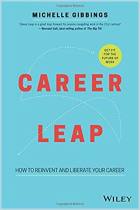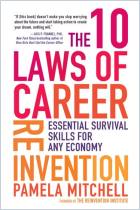Melden Sie sich bei getAbstract an, um die Zusammenfassung zu erhalten.

Melden Sie sich bei getAbstract an, um die Zusammenfassung zu erhalten.
Martha E. Mangelsdorf
Strategies for Successful Career Change
Finding Your Very Best Next Work Life
Ten Speed Press, 2009
Was ist drin?
Changing careers, by choice or by circumstance, is intimidating. To navigate the transition smoothly, use this guidebook.
Recommendation
Some people decide to switch careers to pursue more gratifying work. Others have career change thrust upon them by company closings, downsizing or technological advancements. Whatever the reason, changing careers can be stressful and bewildering. Business writer Martha E. Mangelsdorf’s common sense manual, while a bit simplistic, does a good job of breaking the process into manageable steps. The first is identifying what you want. That is never easy, but once you manage it, the rest of your transition will fall into place so you can focus on practicalities. Can you find opportunities in a related field or even within your current company? What are your strengths, weaknesses and “transferable skills”? Can you switch careers without additional training and education? Could you overlap careers or work two jobs to maintain your financial security? Mangelsdorf answers all these questions and more, using successful career change stories to punctuate her points. If you are at a career crossroads, getAbstract recommends this guide to help you navigate through the tumult.
Summary
About the Author
Martha E. Mangelsdorf worked at Inc. magazine and wrote a column on career transition for the Boston Globe. She is currently an editor at the MIT Sloan Management Review.


















Comment on this summary